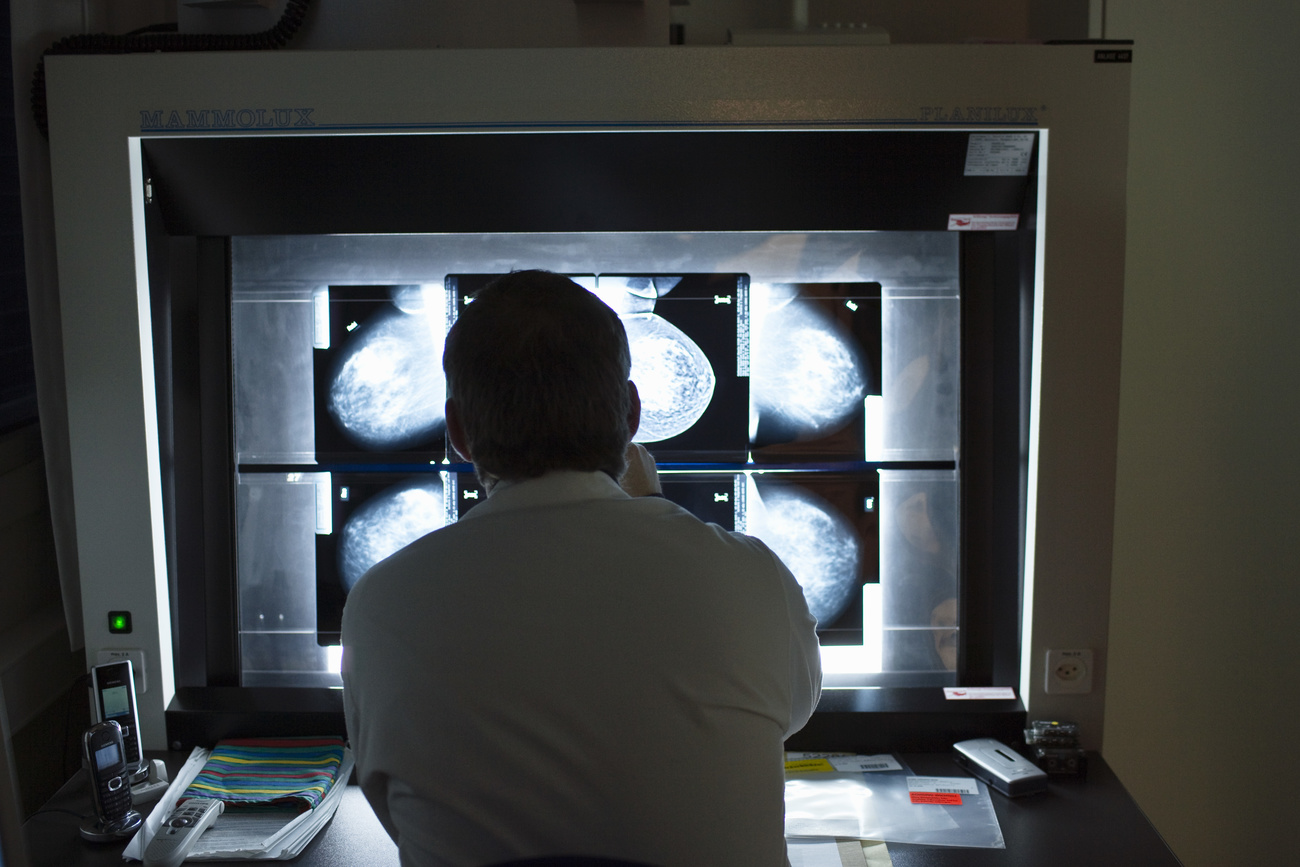
Swiss researchers reveal mechanism behind breast cancer metastases

A certain type of white blood cell promotes the formation of metastases in breast cancer, according to researchers at the University of Fribourg, which says this discovery could be important for the development of new treatments.
Although early detection and modern treatments offer most patients with breast cancer a good chance of recovery, around one in four of those affected develops metastases, the University of Fribourg wrote in a press release on Monday.
Metastatic cancer stem cells have the ability to break away from the original tumour and spread to other parts of the body, which promotes the spread of the cancer and makes treatment more difficult.
+ Cancers among young people have almost doubled
The development of metastases is promoted by inflammation inside the tumour and in its surroundings. The research team led by Curzio Rüegg has now identified a new mechanism that links this inflammation and the development of metastases. So-called granulocytes, a type of white blood cell that plays an important defence role in acute inflammation, facilitate the formation of metastases, the researchers showed in a study published in The Journal of Clinical Investigation.
“In a way, the cancer cells induce the granulocytes at the tumour site to produce inflammatory mediators, interleukin 6 and oncostatin,” Rüegg explained in the press release. In a second step, these two mediators then transform the breast cancer cells into a particularly aggressive form known as highly metastatic cancer stem cells.
+ More Swiss are getting cancer, but fewer are dying from it
In the study, the researchers showed in the laboratory that the inhibition of these two mediators suppresses the formation of cancer stem cells and metastases.
This work opens up real opportunities for the development of new treatments for patients with a high risk of metastasis, the university wrote. Interleukin-6 inhibitors are already available and are used to treat patients with chronic inflammatory diseases.
Translated from German by DeepL/ts
This news story has been written and carefully fact-checked by an external editorial team. At SWI swissinfo.ch we select the most relevant news for an international audience and use automatic translation tools such as DeepL to translate it into English. Providing you with automatically translated news gives us the time to write more in-depth articles.
If you want to know more about how we work, have a look here, and if you have feedback on this news story please write to english@swissinfo.ch.

In compliance with the JTI standards
More: SWI swissinfo.ch certified by the Journalism Trust Initiative


























You can find an overview of ongoing debates with our journalists here . Please join us!
If you want to start a conversation about a topic raised in this article or want to report factual errors, email us at english@swissinfo.ch.